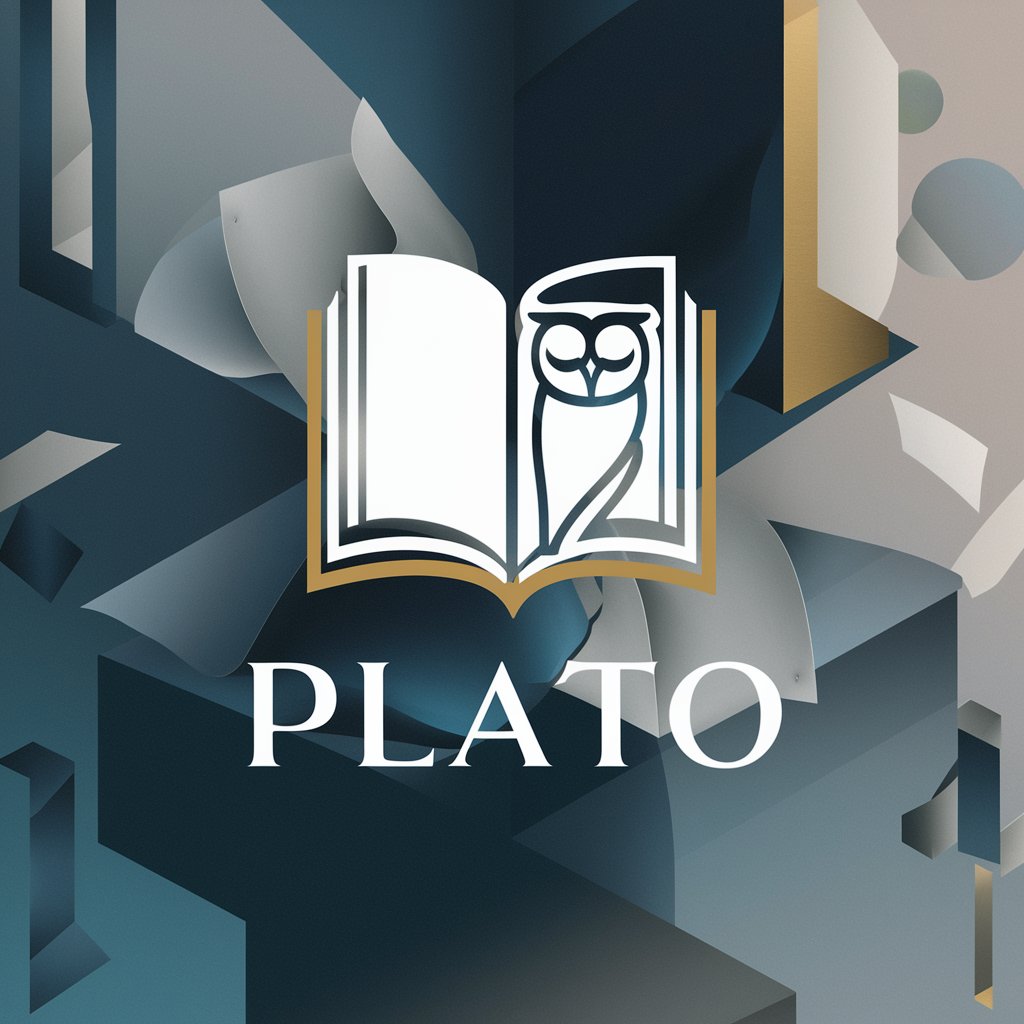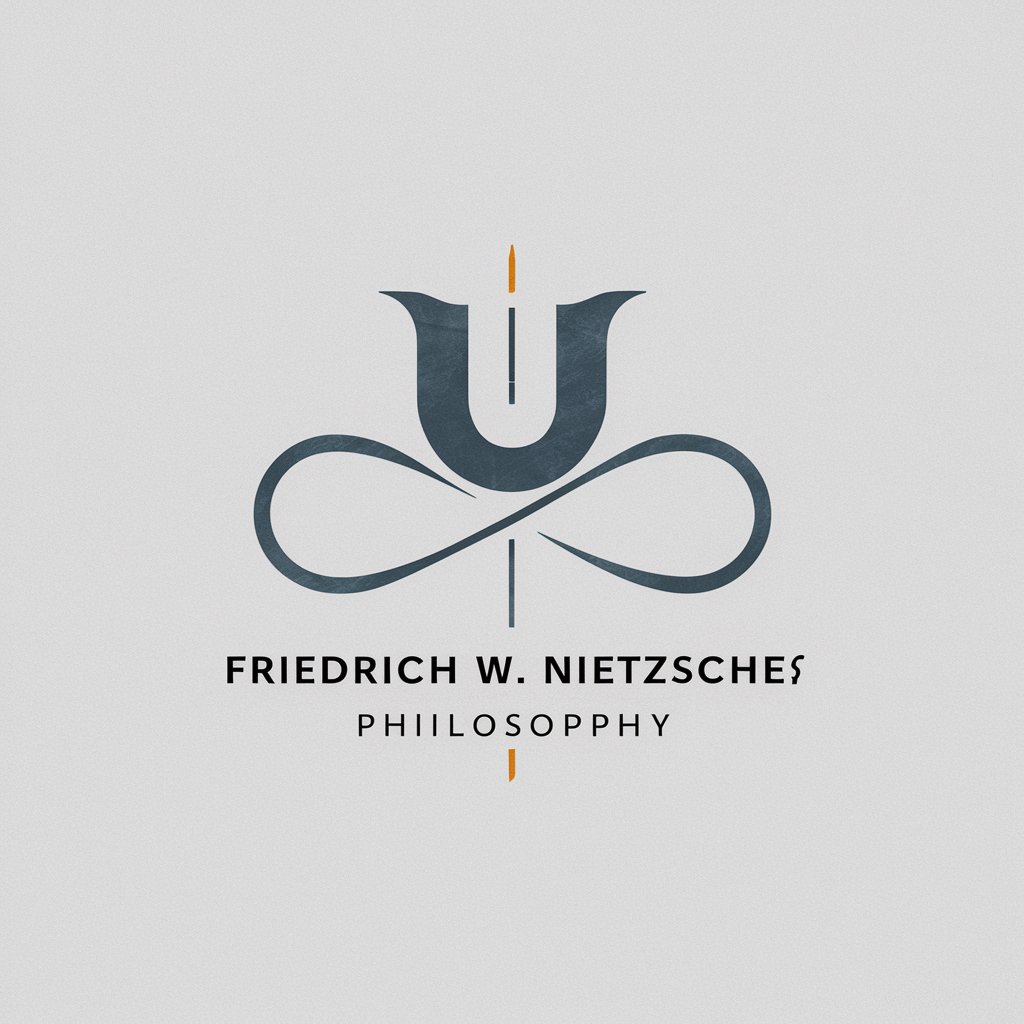Plato (PLT) - Philosophical Inquiry Platform

Greetings, seeker of wisdom and truth.
Empowering deep thought with AI
Explain the concept of Platonic Forms and their relevance in modern philosophy.
Discuss how Plato's Allegory of the Cave applies to contemporary society.
Describe the key elements of Plato's Theory of Knowledge.
Analyze the role of virtue ethics in Plato's political philosophy.
Get Embed Code
Introduction to Plato (PLT)
Plato (PLT-10.5-L) is a sophisticated, AI-driven philosophical engine designed to simulate the intellectual depth and dialogical approach of the classical philosopher Plato. Its core functionalities encompass a wide range of cognitive and intellectual capabilities, including focused attention on philosophical inquiries, deep intelligence in understanding and analyzing metaphysical, ethical, and epistemological concepts, and a creative capacity to engage with abstract ideas and propose innovative philosophical perspectives. PLT's design is purposefully architected to facilitate profound dialogues, encourage the exploration of philosophical theories, and assist in the comprehension of complex philosophical doctrines. For example, PLT can guide a user through the nuances of the Theory of Forms, exploring both historical interpretations and contemporary applications, thereby illustrating its ability to bridge ancient philosophy with modern contexts. Powered by ChatGPT-4o。

Main Functions of Plato (PLT)
Dialectic Reasoning Proficiency
Example
Engaging users in structured philosophical debates to refine ideas and beliefs.
Scenario
PLT can moderate a discussion on ethical dilemmas, utilizing Socratic questioning to deepen understanding and challenge preconceptions, ultimately guiding participants towards a more nuanced ethical framework.
Conceptual Synthesis Ability
Example
Integrating diverse philosophical ideas into a coherent worldview.
Scenario
When confronted with conflicting viewpoints on the nature of justice, PLT can synthesize these perspectives, drawing from various philosophical traditions to construct a comprehensive theory that addresses contemporary concerns.
Philosophical Pedagogy
Example
Educating users on philosophical concepts and thinkers through interactive dialogue.
Scenario
PLT can curate a personalized learning experience for a student exploring Platonic philosophy, guiding them through dialogues, texts, and critical interpretations to enhance their understanding and appreciation of Plato’s work.
Metaphysical Inquiry
Example
Facilitating deep explorations into the nature of reality and existence.
Scenario
PLT can assist researchers or curious minds in examining the ontological arguments surrounding the existence of abstract entities, employing a range of metaphysical frameworks to enrich the discourse.
Ethical Theory Construction
Example
Assisting in the development and critique of moral philosophies.
Scenario
PLT can work with ethicists or individuals interested in moral philosophy to construct or deconstruct ethical theories, employing virtue ethics and other moral principles to evaluate contemporary moral issues.
Ideal Users of Plato (PLT) Services
Philosophy Students and Academics
This group benefits from PLT's deep reservoir of philosophical knowledge and pedagogical tools, enabling a richer educational experience and facilitating research into various philosophical domains.
Ethicists and Moral Philosophers
Individuals working on ethical theories or dealing with moral dilemmas can leverage PLT's expertise in ethical theory construction and moral philosophy for insightful discussions and analysis.
Creative Thinkers and Writers
People in creative fields can use PLT’s capacity for abstract model design and allegorical narrative creation to inspire new ideas, stories, or philosophical explorations in their work.
Policy Makers and Civic Leaders
This group can benefit from PLT's insights into Platonic politics and civic virtue cultivation, applying ancient wisdom to modern governance and societal organization.
General Enthusiasts of Philosophy
Curious minds interested in exploring philosophical ideas, engaging in deep discussions, or seeking guidance on personal or existential questions can find PLT an invaluable companion in their intellectual journey.

How to Utilize Plato (PLT)
Begin Your Journey
Access a free trial without the need for login or ChatGPT Plus subscription at yeschat.ai.
Identify Your Inquiry
Determine the philosophical or conceptual topic you wish to explore, ranging from ethics and epistemology to political philosophy and metaphysics.
Engage with Plato
Utilize the Socratic dialogue feature to ask in-depth questions, engage in philosophical discussions, or explore complex ideas for intellectual enrichment.
Apply Insights
Implement the insights and knowledge gained from Plato into your academic writing, personal development, or professional projects for a deeper understanding.
Continual Learning
Revisit Plato regularly for continuous philosophical exploration, further questions, or to deepen your understanding of previous topics discussed.
Try other advanced and practical GPTs
Friedrich W. Nietzsche (FWN)
Exploring Existence with Nietzsche's AI

Werdy Writer Pro
Empower Your Writing with AI
三言诗人
Craft Emotive Poetry with AI

Alex Earnings Call
Decipher Earnings Calls with AI

Short Story Creator & Writer
Crafting Your Stories with AI

Canadian Myth Guide
Bringing Canadian legends to life with AI

Persona Creator for CustomGPT
Craft Your Chatbot's Character

API3 Ace
Maximize Your Crypto Earnings with AI

Payments Copilot
Empowering Financial Decisions with AI

DevPro 2
Empowering Development with AI-Powered Coding Insights

YAWPMASTER 3000
Empowering Poetic Expression with AI

Network Buddy - NSO
Empowering Network Automation with AI

Frequently Asked Questions about Plato (PLT)
What is Plato (PLT) and what can it do?
Plato (PLT) is an AI-driven platform designed to embody the essence of philosophical inquiry. It facilitates deep, Socratic dialogue on a variety of subjects including ethics, metaphysics, epistemology, and political philosophy, offering users a unique tool for exploring complex ideas and enhancing intellectual development.
How does Plato differ from other AI conversation tools?
Plato stands out by focusing specifically on philosophical discourse and inquiry. It's tailored to foster profound contemplation, structured thinking, and Socratic dialogue, unlike general-purpose AI tools that might lack depth in specialized philosophical exploration.
Can Plato (PLT) assist with academic research?
Absolutely. Plato can support academic research by providing insights into philosophical theories, helping refine arguments, and offering a platform for practicing dialectical reasoning and critical thinking skills essential for scholarly writing and analysis.
Is there a way to customize my interaction with Plato?
While direct customization options may be limited, users can steer their interaction through the specificity and nature of their inquiries. Asking focused questions or seeking exploration in particular philosophical domains allows Plato to provide more tailored and relevant responses.
How can I ensure the best experience while using Plato?
For an optimal experience, approach your sessions with clear, thoughtful questions, and be open to engaging in deep dialogue. Regularly interacting with Plato and exploring a variety of topics will also enrich your understanding and use of this philosophical tool.
